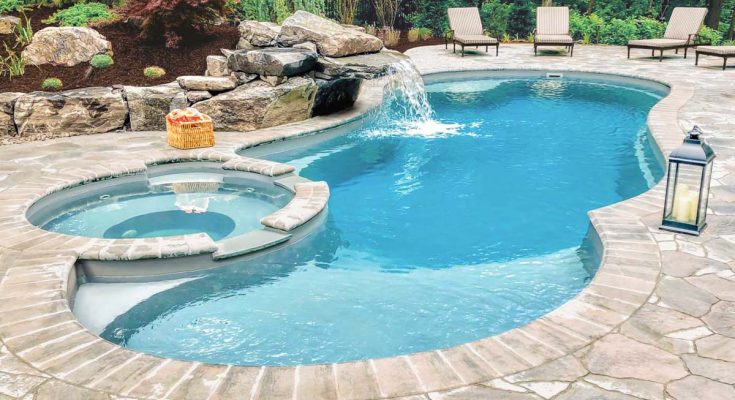If you have a pool or intend to buy one, there are ways to protect it from the summer heat and even prevent water damage. A pool is a great way to have fun in summer, but it can also be a huge drain on your wallet. With the right steps, you can make sure that your investment pays off for years to come.
Why Should You Protect Your Pool From Chlorine?
Chlorine is a common disinfectant used to keep pools clean. However, chlorine can also cause skin irritation and allergic reactions in some people. In extreme cases, chlorine exposure can lead to asthma attacks and death. To protect your pool from chlorine and summer heat:
Always use a certified pool cleaner. Uncertified cleaners can actually increase the risk of pool contamination.
Keep your pool covered when not in use. This will help keep the sun off the water and reduce the chances of it becoming chlorinated. Installing swimming pool covers can help keep chlorine away from the ground and water, and can also help protect against sun and weather damage. For added protection, use an overhead cover or a shade structure.
Avoid using swimming pools during pollen season if you are sensitive to pollen or have asthma. Pollen season typically runs from May to September in most areas.
Summertime is the perfect time to enjoy your pool, but it’s important to remember to protect it from chlorine and other elements that can harm it. Chlorine can cause swimming pool water to become cloudy and smell bad, while also leading to algae growth and skin irritation. To protect your pool from these dangers, you should use a glass enclosure. A glass enclosure will keep out both chlorine and sunlight, making it a safe place for your pool. It also makes the pool look more inviting and helps keep debris out of the water.
To protect your pool from chlorine and other summer hazards, follow these tips:
1) Use a filter system that removes chlorine and debris: A good filter system will remove chlorine, dirt, leaves, and other debris from the water. This will help keep the water clear and odor-free.
2) Keep the pool clean: Regularly clean the coping around the pool, tiles, steps, and filters. This will help reduce the build-up of debris that can lead to problems with chlorine usage or algae growth.
3) Avoid over-chlorinating: Always use caution when adding chlorine to your pool. Over-chlorination can lead to cloudy water, poor swimming conditions, and even bacterial contamination of the pool. Follow specific guidelines from your pool manufacturer for safe chlorination levels.
How To Protect Your Pool From Chlorine
The best way to protect your swimming pool from chlorine is to use a cover. Covering the pool with a fabric or vinyl cover will keep the chlorine out and help to minimize evaporation. You can also install a solar cover, which will heat up and melt the ice on your pool, protecting it from chlorination during cold weather. If you live in an area where temperatures reach over 80 degrees Fahrenheit during the summer, you should also consider hiring a pool cleaning company to clean your pool regularly.
Summertime pool swimming is a great way to cool down and escape the heat, but it can also be very tiring. If you’re feeling exhausted after swimming, it may be because of heat exhaustion syndrome (HES). HES is a condition caused by extreme heat exposure that leads to fatigue and muscle weakness.
To help protect your pool from chlorine buildup and summer heat exhaustion, follow these tips:
1. Keep an eye on the water temperature. Pool water should be between 88-92 degrees Fahrenheit to prevent chlorine burn-off. If the water gets too hot or cold, adjust the pool pump or heater as needed.
2. Use shade when appropriate. Make use of furniture and umbrellas in your pool area to keep yourself shaded while you swim.
3. Drink plenty of fluids. Stay hydrated by drinking plenty of fluids before, during, and after swimming; try having ice chips or popsicles handy for those extra-long swims! You’ll also want to avoid alcohol since it will make you more dehydrated.
4. Avoid overexerting yourself. Don’t push yourself too hard if you’re feeling tired; take it easy until your body has had time to rest and recover from the swim session.
Conclusion
Summertime is a great time to spend outdoors, but it can also be dangerous for your swimming pool. Chlorine levels are high in summer and can cause the browning of the water, while heat and humidity can lead to an increase in algae growth. To keep your pool safe and healthy this summer, follow these tips:
1. Keep chlorine levels as low as possible by using products with a lower concentration of chlorine.
2. Use a solar cover when possible to help keep the pool cool on hot days and reduce the need for chlorination.
3. Monitor water temperature and pH levels regularly to make sure they stay within safe ranges.
4. Make sure all equipment is properly maintained and adjusted to ensure optimal performance in warm weather conditions.




